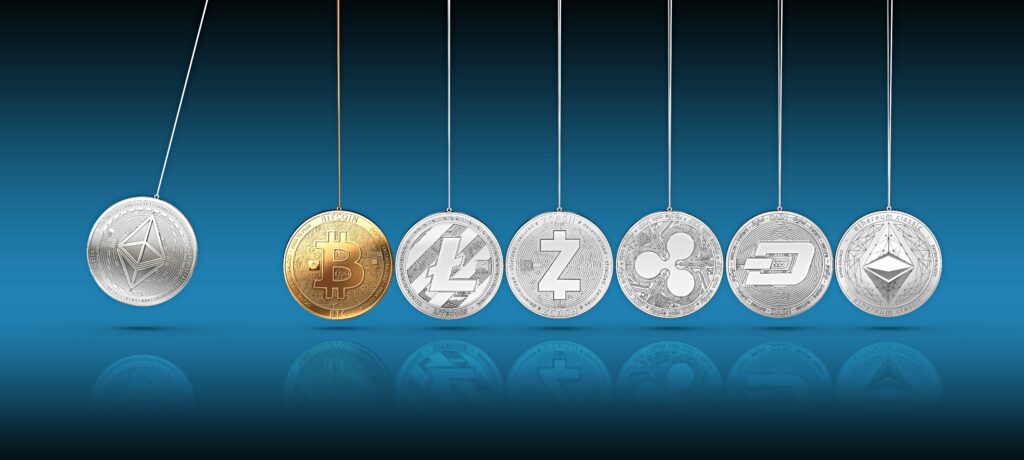Initial Coin Offerings
Initial Coin Offerings (ICOs) are all the rage right now. The money raised so far this year has been more than $1 billion and they seem to be getting more and more popular as a form of fundraising. As a member of the UCL Centre for Blockchain Technologies, I have been keeping my eye on many ICOs and reading lots of white papers. There are many themes such as verification, asset management (e.g. in land), compliance, regulation, etc. However, I have noticed a major theme, that is not being discussed much, but might affect the direction the global startup ecosystem is heading in the next few years. Startups seem to be basing their business models on markets backed up by tokens and cryptocurrencies.
So, the main incentive for a startup to do an ICO is that there it allows the startup to bypass regulations, VCs and investors and raise directly a large amount of money. The revolutionary idea was backed by Ethereum which has made everything pretty simple through the Solidity scripting language for smart contracts. With Ethereum it became clear that blockchain, as a technology, is something larger than Bitcoin and other cryptocurrency applications. The standard way to do the ICO is to basically exchange tokens with Ether or Bitcoin. Hence the name Initial Coin Offering.
The problem with ICOs
So, you participated in an ICO and you find yourself holding a bunch of tokens/coins. What can you do with them? Not much, as they don’t have any intrinsic value of their own. However, they can be exchanged with ether and if they raise in value in the future, then you can make a nice profit. So, in what circumstances are they going to increase in value? It normally depends on supply and demand. However, there are various ways the startup can set up the market in order to control supply. Demand usually comes when the startup attracts more users. Finally, someone might make money off a token that is traded in an exchange.
So, you have an environment with restricted rules, a clear medium of exchange, and, possibly, incentives towards some behaviour. This is a market and same rules of economics apply here around supply, demand and utility functions. The funny thing in many ICOs is that they follow business models which could have been done simpler through a centralised system that used proper money as the medium of exchange. It seems that some ideas are shoehorned to fit into the ICO model, solely because they want to raise money through an ICO instead of using traditional avenues.
This can be both good and bad. It is bad, because many startups are doing the wrong thing. They create a complicated business model that when you read it, you can will wonder why they are not just using fiat currency for their services. However, it is good at the same time because markets is a powerful mechanism and somehow some startups seem to be coming up with creative solutions to solve interesting problems. Within the overall trend we start seeing some mini-trends.
Good business models for initial coin offerings
An example is the blockchain fund. Instead of investing money directly into a fund (be it a hedge fund, VC or otherwise), users invest tokens and then the tokens are attached to some reward. Some examples in this area are SISA and CRYPTO20. The startups in this area promote some advantages of blockchain such as greater transparency and democratisation. However, for many of these, they might just be trying to replace traditional funds with a new and fancy piece of technology, without a clear advantage in doing so.
Another example where blockchain and tokens can clearly add something of value is digital democracy. Some examples are Vote Coin and Boule. The tokenised economy fits more naturally with this theme. Tokens can relate to voting power. The users can be incentivised with more tokens in order to perform actions beneficial for the system (e.g. audit election results). And finally, blockchain adds transparency. However, in this case, using the tokens in order to make a profit on an exchange might dilute the original incentives offered by the platform. So, once again, the artificial market and the ICO must be carefully planned.
Another very good example of a smart application of a market is Filecoin, which is using a market mechanism in order to decentralise storage and provides incentives based on the size of storage and the quality of service. Another good example is Solarcoin, which is a digital currency that rewards solar energy producers. Solarcoin can now be used a form of payment for some utility companies.
Before ICOs, the closest we had to market based models was e-Bay and the gig economy (Uber, Deliveroo, TaskRabbit, etc.). However, with ICOs, we are seeing an explosion in market-based business models. I am really interested to see how this will pan out in the next few years and whether this represents a more permanent trend in startups. In any case, understanding setting up the tokenomics of the business in the right way is key for ensuring the long term viability of the venture.
- What is the F-1 measure and why is it useful for imbalanced class problems?
- From Data Streams to Decentralized Worlds: Exploring the Role of Blockchain Subgraphs in Gaming Infrastructure
- How to predict customer churn using machine learning, data science and survival analysis
- Business models in data science and AI



